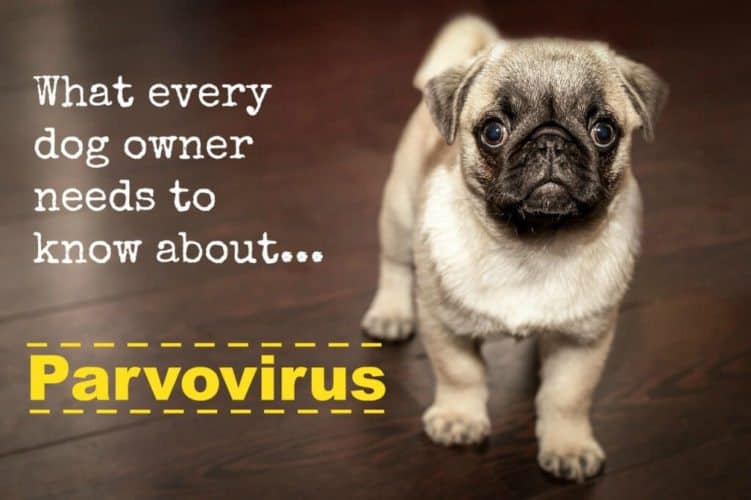[vc_row][vc_column][vc_custom_heading text=”Parvo Vaccinations & Safety” use_theme_fonts=”yes”][vc_column_text]You know how everyone loves stumbling upon puppies in real life? Come on, who doesn’t love to bump into a playful, chunky ball of fur- so full of life and puppy breath? ME! That’s who! I don’t want to see your puppies in the real world until they are old enough to be in the real world. If I do see your puppies, I hope it is at my clinic, in your lap (not the floor) for vaccinations.
When I see your puppies at Pet supply stores, the dog parks, and being passed from person to person in your front yard, I immediately think about Parvo, and I begin trying to guess how much disposable income you have sitting in your bank account. I try to guess if you already have a full-service vet on hand because when your puppy becomes sick it will undoubtedly be on a weekend when only 1 local vet clinic will see patients that are not already patients of record and when the after-hours fee will be a minimum of $150.00. Then I wonder how many will wait till Monday when the puppies best chance of fighting and surviving has passed. According to the AVMA, “most deaths from parvovirus occur within 48 to 72 hours following the onset of clinical signs.”
I get it! You are excited about your puppy. I am excited about your puppy because I love puppies. Seriously, there are few things more adorable than a puppy, a kitten, or anything new to the world. Why do parents of newborn babies seem to have so much more innate sense than those with new puppies, though? New parents will make you wash your hands before looking at their baby. They refuse to go to germ-infested restaurants with their newborns. They lock their sick spouses out of their own home to not expose their baby to whatever illness is preying on the person they promised to love and cherish before the baby came along. So why, is the same logic not applied to puppies?[/vc_column_text][vc_single_image image=”32848″ img_size=”full”][vc_column_text]Here’s the scoop! Parvo lives everywhere dogs poop. If you walk anywhere there is grass, you could be bringing it home on your shoes. Chances are it is already in your yard and if not, it’s in your neighbors. What can you do?
- Avoid the yard until your puppy has been vaccinated. Potty training a puppy less than 4 months is a waste of time anyway. They can’t truly hold their bladders until 6 months of age. Potty pads are safe and can start the potty training process. In addition to being constant poop machines, puppies are curious. If it’s on the ground, they will chew it. Many of these things can be dangerous so crating a puppy that is not supervised protects your favorite shoes AND your puppy from electrocution, entanglement, poisonous plants, etc.
- Use a crate or blanket when taking your puppy to the vet. Do NOT put your puppy on the floor.
- Do not take your puppy to dog parks or pet stores. They can join you when they are older and vaccinated. You will not miss out on any Oooh’s and Ahhh’s! I promise a 4-month-old puppy is just as cute as an 8-week old puppy and solicits the same attention.
- Do not let your puppy play with un-vaccinated pets.
- If you work around pets, change your clothes and remove your shoes when you go home.
When is my puppy ready for the real world? They are ready when they are completely vaccinated. Vaccines should begin at 6-8 weeks of age and continue every 3-4 weeks until 20 weeks of age. AAHA updated its recommendations for vaccines in September of 2017. Previously, we were told to stop vaccinating at 16 weeks but now it is safest for your pups to continue vaccinations until 20 weeks in parvo prevalent areas like ours. Many vets go a step further and say pets are not fully protected until 10 days after their final vaccine. Our vets say to wait until 10 days after your pet’s 2nd series at the very earliest but later is safest.
Click here for our vaccination guidelines. Protection against Parvo is just one step in ensuring your puppy stays healthy. If you do not already have a full-service vet, please establish yourself somewhere. Though PETS Clinic offers spays, neuters, and preventative care, we can not see or treat sick or injured pets. Having a full-service vet could be the difference between life or death in the case of a pet emergency.[/vc_column_text][/vc_column][/vc_row][vc_row][vc_column][vc_single_image image=”10031″ img_size=”full” alignment=”center” onclick=”link_image”][vc_single_image image=”10030″ img_size=”full” alignment=”center” onclick=”link_image”][/vc_column][/vc_row]

